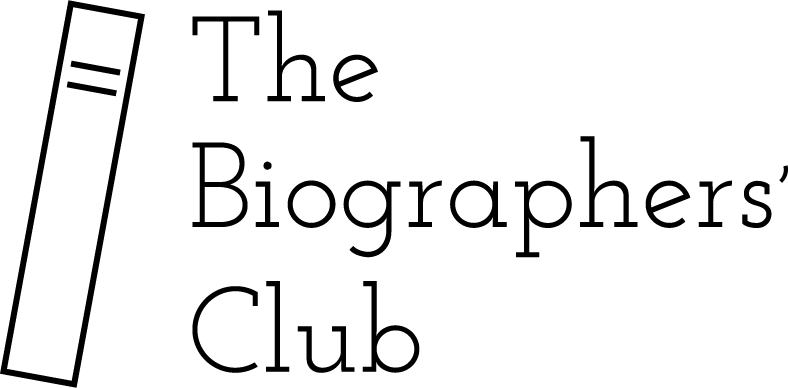Tony Lothian Prize 2019
Our shortlist for the best proposal
for an uncommissioned biography received in 2019 is just announced, and the
prize will be awarded at the Biographers’ Club Christmas Party on Wednesday 4
December
Emma Bielecki: The Lives of Vidocq –
From King of Thieves to Prince of Policemen
The improbable story of Eugene-Francois Vidocq, criminal-turned-detective – or more specifically tinker, tailor, soldier, sailor, thief, forger, conman, quack, convict, mountebank, criminal informant, police spy and finally, celebrated detective. Part Dick Turpin, part Casanova, part Napoleon, by the time he died in 1852 his name and fame had spread throughout Europe, as a byword for cunning, conspiracy – and the law.
His picaresque life story reads like fiction: his youth delinquent, his soldier years a riot of duelling and deserting, his prison years interspersed with banditry, smuggling and theft. Who better qualified to turn informer, and create the first police detective organisation in the world? Dining with Balzac, Dumas and Hugo (who based both Jean Valjean and his nemesis Javert in Les Miserables on him), he wrote memoirs which ensured his legend would live on. Bielecki mines the archives to write a book about crime and punishment, secrecy and surveillance, and the cult of celebrity, with every resonance for today.
J.S. Casey: Isabel Rawsthorne – An Artist in Paris and Soho
The remarkable life of Isabel Rawsthorne, artist and muse, painted by Picasso and Francis Bacon, and lover of Epstein and Giacometti. Bohemian from the outset, she studied painting at the Royal Academy before turning model for Jacob Epstein, and bearing his child. In Paris before and after the War she consorted with Derain, Giacometti, and the intellectuals and artists of the Left Bank. Back in London with her second husband, composer Constant Lambert, she haunted the Colony Club, and became a successful sculptor, painter and set designer as well as muse for Francis Bacon.
The fascinating figure of Isabel Rawsthorne flits through every memoir of Bohemian London and Paris at that time, yet she has never yet been the focus of a biography. This study fills that gap and brings the world she lived in vividly to life.
Tom Seymour Evans: The Canyons – Six British Exiles, Los Angeles and the Counterculture
In the late 1930s, six pacifists fled a Britain on the brink of war, and settled around the canyons on the edge of Los Angeles. Writers Dodie Smith, Aldous Huxley and Christopher Isherwood; poet and actress Iris Tree, journalist Gerald Heard and socialist clairvoyant Eileen Garrett were drawn together in exile to grapple with the dilemmas of the age and to hammer out new ways of living and thinking. In a thrilling story of political and sexual dissent, Seymour Evans shows how ideas rooted in the 19th century morphed into urgent experiments in the counterculture, in a landscape populated by visionaries, charlatans, filmmakers, communists, pornographers, rogue psychiatrists, FBI agents and mystics.
This kaleidoscopic book weaves its subjects’ stories through a those of rich supporting cast of characters, from Charlie Chaplin to Georgia O’Keefe, and charts the rise of Los Angeles itself and the political and sexual freedoms it offers.
Jay Prosser: Empire’s Loving Strangers: Journeys Through an Asian-Jewish Camphorwood Chest
A story of generations of spice-trading Jews who met, loved and married the Chinese women who worked for them, in Britain’s Asian empire. The author unravels his family’s many stories from the contents of a camphor-wood chest that his mother brought when migrating from Singapore to England. This treasure-trove reveals a different picture of empire, told by the ruled and not the rulers – empire as the catalyst of encounters and intimacies between far-flung strangers. Prosser tells an unfamiliar story of Jewishness across the wide canvas of Asia, from Iraq to India, Singapore and China, focusing on the individual lives and unique encounters of generations of his Jewish-Asian family.
Joe Stadolnik: The Unsettled Life of Duarte Brandao
Duarte Brandao was a shape-shifter, a master of re-invention, whose life mapped the fortunes of fifteenth-century Europe. Born poor and Jewish in Lisbon in 1440, he died there enobled, enormously wealthy and a Christian 70 years later. Unsettled Life pursues Brandao from Lisbon’s wharfs to the heart of mercantile London, where he made one fortune and married into others. Re-styled as ‘Edward Brampton’ he consorted with kings and pretenders, including Perkin Warbeck, and funded the Exchequer, before political intrigues forced him on to Bruges, and back to a Lisbon now embarking on a new age of discovery and empire.
His shadowy life has been pieced together from fragments, and reveals a figure who lived at the margins of history and challenges all our notions of medieval identity.
Lois K. Yorke: The Life and Times of a ‘Difficult Woman: Anna Harriette Leonowens (1831–1915)
Immortalised by Hollywood as the English governess at the heart of the court of Siam (The King and I and Anna and the King), Anna Leonowens’s life story has hitherto been a tissue of claims and counter-claims, only loosely based on her own colourful accounts. Her spell at King Mongkut’s court occupied only a fraction of this buccaneering woman’s astonishing career, which took her from India to convict-settled Australia, and from the ruling elite of Thailand to east-coast America and, ultimately, Canada. Wherever she went this independent, forthright woman raised the temperature and left an indelible impression on all who met her. Her long life touches on many of the great themes of the nineteenth century: imperialism and diplomacy; eastern inscrutability and the western gaze; high culture and popular taste; education and the early pangs of feminism. Lois K. Yorke dispels the many myths that have lingered and shows Anna to have been, indeed, a bellwether for women then and now.

